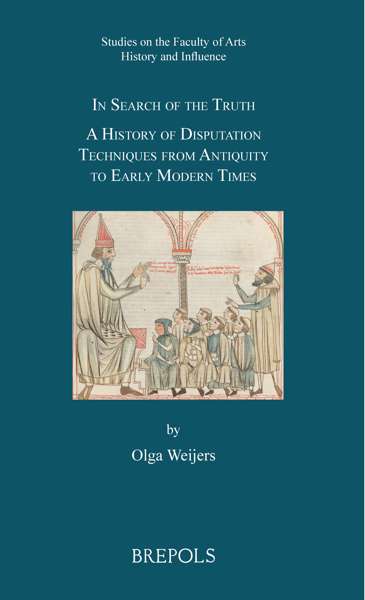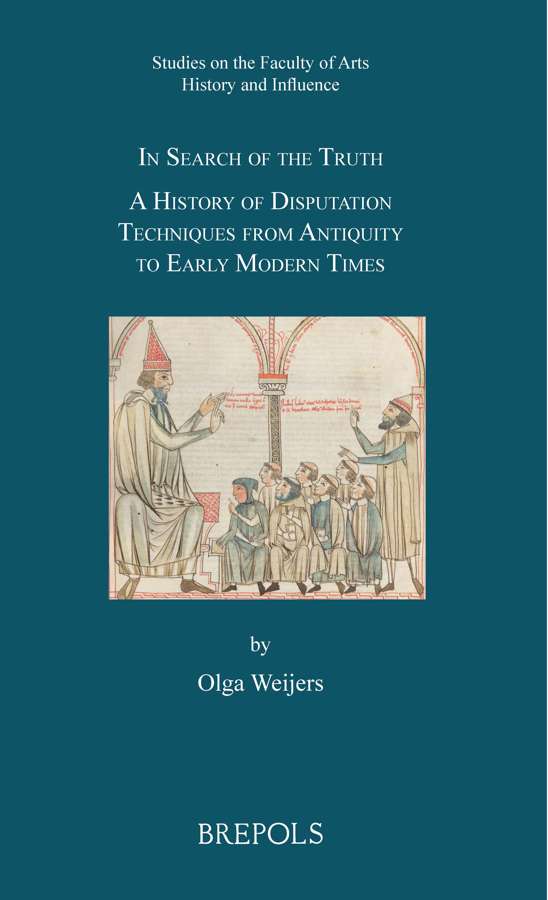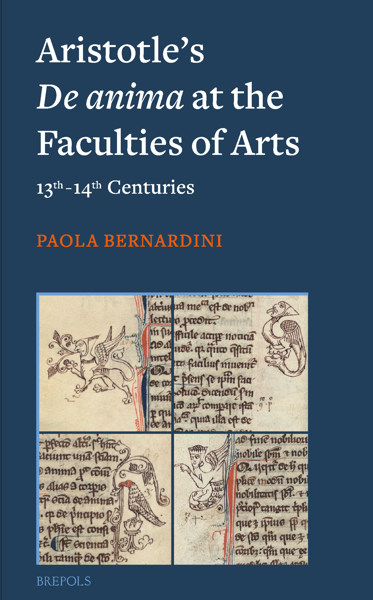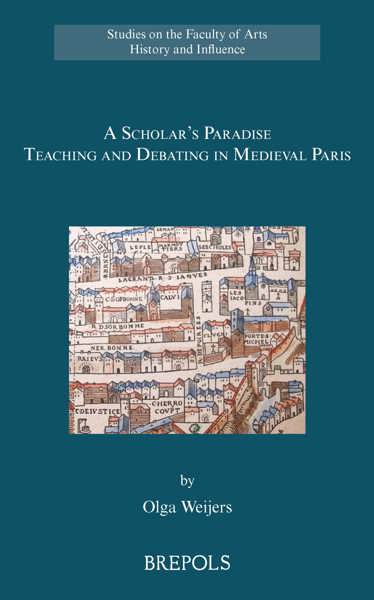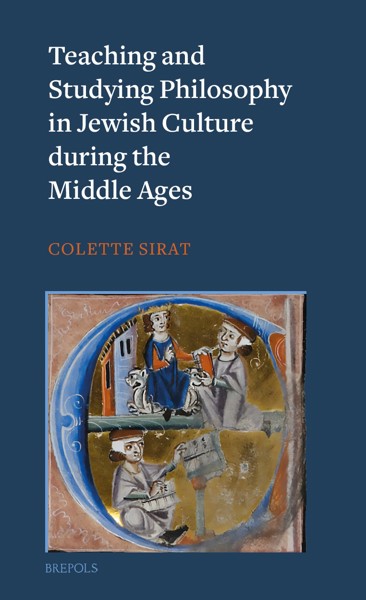
In Search of the Truth
A History of Disputation Techniques from Antiquity to Early Modern Times
Olga Weijers
- Pages: 341 p.
- Size:127 x 203 mm
- Illustrations:5 b/w, 1 col.
- Language(s):English
- Publication Year:2014
- € 55,00 EXCL. VAT RETAIL PRICE
- ISBN: 978-2-503-55051-0
- Paperback
- Available
- € 55,00 EXCL. VAT RETAIL PRICE
- ISBN: 978-2-503-57294-9
- E-book
- Available
"Olga Weijers has written a concise and lucid history of the disputation in Europe from antiquity to the eighteenth century which draws on her twenty years of scholarly research focused especially on the medieval universities in the thirteenth and fourteenth centuries." (Ann Blair, in: History of Universities, 28/2, 2015, p. 159-162)
"Olga Weijers (...) is in many ways the ideal person to undertake a broad synthesis of the history of disputation techniques from classical to early modern times. On the whole, she is successful. This handy volume, issued by Brepols in a pocketbook format, provides a very useful introduction to the subject matter by a leading authority in the field. (...) Anyone interested in the history of medieval and early modern disputation will (...) find this book a welcome guide to the subject." (Alex J. Novikoff, in: Renaissance Quarterly, 68.2, 2015, p. 667-668)
"De par son accessibilité toujours érudite, l’ouvrage permet au lecteur de s’immerger dans le monde de l’université médiévale. En ce sens, il représente une introduction à la philosophie médiévale sans équivalent (...). Nous en recommandons vivement la lecture aux étudiants qui souhaitent se spécialiser en philosophie médiévale, tout comme aux spécialistes qui veulent s’informer sur les diverses interprétations auxquelles la disputatio a donné lieu." (Magali Roques, dans: Archives de Philosophie, 78, 2015/3, p. 577-578)
"The result of Weijers’s investigation is a fascinating volume, which is notable for its vast documentation, but also presents a broad reconstruction that traces the roots of the medieval practice of disputation back to the Greek world and then follows its later transformation in early modern times." (Silvia Donati, in: Speculum 91/1, January 2016, p. 266-267)
"(...) die erste und einzige Synthese zu einem Thema, das jeden Erforscher vormoderner Wissenschaft angeht." (Frank Rexroth, in: Historische Zeitschrift, 302, 2016, p. 129-130)
«Au total, l’ouvrage est clair, il comporte une mise au point solide sur la disputatio dans l’Occident médiéval et post-médiéval et, à ce titre, se recommande à la lecture.» (M. Cacouros dans le Bulletin Codicologique Scriptorium, 2, 2015)
“Olga Weijers (…) has produced some outstanding studies (…). The present study is particularly significant (…). This is an outstanding introduction to the history of the disputation. Some readers will find themselves wanting further discussion of a given topic (…), and Weijers is quick to footnote supplemental studies.” (John T. Slotemaker, in Religious Studies Review, 42/2, 2016, p. 114-115)
Disputation and debate have accompanied human development from its beginnings. However, what we still call ‘disputation’, technically speaking, is a particular method of reasoning and analysing, involving either a debate between two people, or of one person with himself. It is this method which is the object of this study. The disputation was one of the main methods of teaching and research during the Middle Ages. Tracing its development shows how it influenced the way in which people examined abstract problems. Reasoning and arguing about contradictory positions remained a feature of intellectual life well into the nineteenth century, and the practice remains alive even today.
For a long time the disputation was the main tool for analysing problems in a range of fields, especially in philosophy and theology. The main features were the analysis of opposite positions and thorough discussion of the various arguments for both sides, the collective search for the truth in special public disputations, the recognition that the truth may differe from the conclusion reached and the willingness to accept better arguments if they brought one closer to the truth. All this is typical of an intellectual attitude, the key features of which are critical thinking and honest collaborative research, that still marks the Western world. The history of the disputation can tell us something about the way in which we learned to think.
